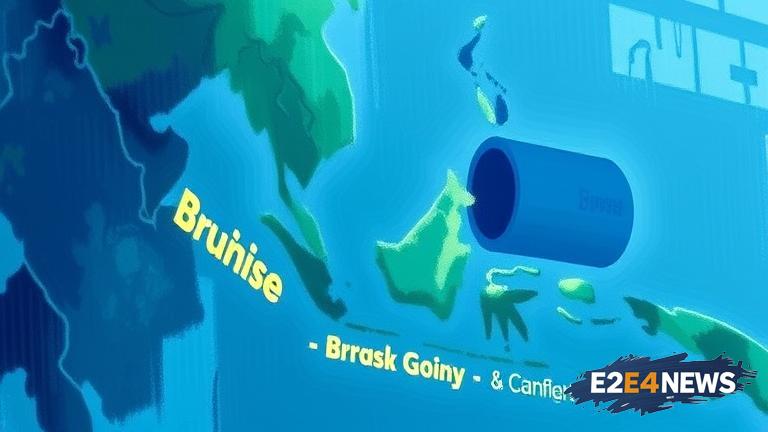Brunei, a small, oil-rich country in Southeast Asia, has been undergoing a significant economic transformation in recent years. The country has been heavily reliant on its oil and gas reserves, which have driven its economy for decades. However, with the decline of global oil prices and the depletion of its reserves, Brunei has been forced to diversify its economy to ensure long-term sustainability. The government has implemented a range of initiatives to promote economic diversification, including the development of new industries such as tourism, manufacturing, and financial services. One of the key areas of focus has been the development of the country’s tourism sector, with the government investing heavily in infrastructure and marketing campaigns to attract visitors. Brunei has also been actively promoting itself as a hub for Islamic finance, with the establishment of the Brunei International Financial Centre. The country has also been investing in education and training, with a focus on developing the skills of its workforce to support the growth of new industries. In addition, the government has been working to improve the business environment, with the introduction of new laws and regulations to support entrepreneurship and foreign investment. Despite these efforts, Brunei still faces significant challenges, including a lack of economic diversification and a reliance on imported goods. The country is also vulnerable to fluctuations in global oil prices, which can have a significant impact on its economy. However, with its strong fiscal position and high standard of living, Brunei is well-placed to navigate these challenges and achieve its goal of economic diversification. The country’s economic transformation is also being driven by its strategic location, with Brunei situated at the heart of the ASEAN region. This provides the country with access to a large and growing market, as well as opportunities for trade and investment. Brunei has also been actively engaging with its regional partners, including through its membership of the ASEAN Economic Community. The country has also been working to strengthen its relationships with other countries, including China, which has become an increasingly important trading partner. In terms of its oil and gas sector, Brunei is working to maximize the value of its remaining reserves, while also investing in new technologies to support the development of its energy sector. The country is also committed to reducing its carbon footprint, with a focus on developing renewable energy sources and reducing energy consumption. Overall, Brunei’s economic transformation is a complex and ongoing process, which will require careful planning and management to achieve success. However, with its strong economy, strategic location, and commitment to diversification, Brunei is well-placed to achieve its goal of becoming a more diversified and sustainable economy. The country’s economic transformation will also have significant implications for its people, with new opportunities for employment and economic growth. However, it will also require significant changes, including the development of new skills and the adaptation to new industries. The government will need to work closely with the private sector and civil society to ensure that the benefits of economic transformation are shared by all. In conclusion, Brunei’s economic transformation is a significant and ongoing process, which will require careful planning and management to achieve success. With its strong economy, strategic location, and commitment to diversification, Brunei is well-placed to achieve its goal of becoming a more diversified and sustainable economy.
